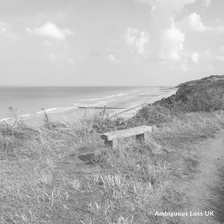ECOTHERAPY AND AMBIGUOUS LOSS
|
We are part of nature and all forms of grief are natural. The natural world reminds us of constant chance and impermanence. We tend to live in a way that disconnects us from our natural environment, and it’s thought this contributes to mental ill-health.
We use seascapes and the natural world for many metaphors around ambiguous loss, and indulge in the therapeutic nature of the sea. Ambiguous grief could be likened to the instability of the sand at the beach, the crumbling cliffs or the vast fathomless ocean. The waves are like the emotions of grief, rolling in and then smoothing out. Sometimes calm and sometimes stormy. Perhaps we are the sailing ship trying to navigate the weather that is out of our control, like ambiguous loss. There are many studies which show how the natural world can improve our wellbeing and this can take many forms. On this page we highlight some benefits of being in our other-than-human world and suggest some methods you might like to try. ‘Ecotherapy’ is a therapeutic activity which involves being outdoors in the natural environment. Also known by other terms, such as green therapy (or blue therapy near water), nature therapy or wilderness therapy. It won’t change your ambiguous loss of course, but it may help you cope better or make sense of it.
Make it your intention to get outside and connect with our other-than-human world and see how you feel. Notice how your grief changes. |
